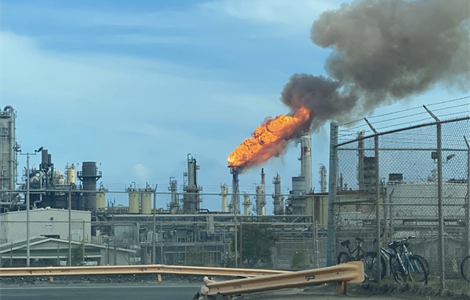Third Circuit Affirms Mandatory Injunction Requiring Clean Water Distribution in Polluted Areas after Burns Charest Argument

“Extraordinary harm warrants extraordinary relief.”
In a reported opinion, the U.S. Court of Appeals for the Third Circuit affirmed an order by the U.S. District Court for the Virgin Islands District requiring Limetree Bay Terminals, LLC to provide clean water—free of charge—to impoverished residents of St. Croix who were affected by releases from the refinery on the southern coast of the Caribbean island.
Co-founder, and co-lead counsel for the putative class, Daniel Charest handled oral argument before the Third Circuit, which sat in the U.S. Virgin Islands for the event. In response to the opinion, Charest stated, “The appellate court correctly upheld the trial court orders creating the water program because, to borrow the words of the Third Circuit, ‘extraordinary harm warrants extraordinary relief.’ Polluters should be brought to account for the harm they do. Providing water is the first step in the process to make that happen on St. Croix, and we are gratified that the good work in the trial court was affirmed on appeal.”
Beyond the headline pronouncement, the Third Circuit affirmed the trial court’s conclusion that the defendants were likely to lose on trial. Focusing on the liability of Limetree Bay Terminals in particular, the appellate court rejected that entity’s effort to blame its sister entity, Limetree Bay Refining, LLC:
Only Refining operated the refinery under the companies’ contracts, Terminals says, so only Refining had a duty to ensure compliance with the operating permit.
Not so. True, Terminals and Refining contracted to oversee different parts of the operation. But Terminals never amended its operating permit to incorporate those agreements. And though Refining had the option to become sole holder of the permit, it did not. Instead, it became a co-permittee. As co-permittees, both companies had to “comply with all conditions of th[e] operating permit.” App. 3554. Terminals could not contract away that federal duty.
Even if Terminals could have, it did not. Though its contract barred it from “unduly interfer[ing]” with operating the refinery, leaving those duties to Refining, it was careful not “to negate or obviate any condition or use restriction set forth in any permit.” App. 5046, 5050. So, if the refinery violated the federal operating permit, as suggested by the weight of the evidence, both Terminals and Refining are on the hook.
For press coverage on the appellate court win, please see:
Former Refiner Can't Dodge Polluted Water Remedy - Law360
Ex-Oil Refinery Owners Ordered to Keep St. Croix Water Program
The consolidated cases are ongoing at the trial court under the caption Boynes et al v. Limetree Bay Ventures, LLC, No. 1:21-cv-00253-WAL-EAH (D.V.I.).